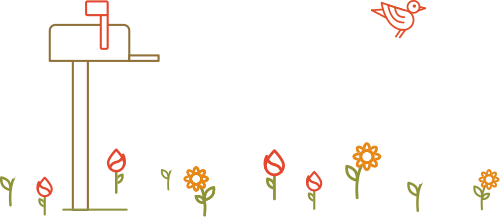 It seems all the nation is abuzz with organic fever. The number of farmers markets has increased dramatically in the past several years, sales of organic products have more than doubled and even the new First Family has jumped on the organic bandwagon.
It seems all the nation is abuzz with organic fever. The number of farmers markets has increased dramatically in the past several years, sales of organic products have more than doubled and even the new First Family has jumped on the organic bandwagon.
But in uncertain economic times, some people are asking if the higher cost of organic foods is worth the benefit. And when it comes down to it, what benefit are we really talking about anyway?
When discussing organic food, most people are referring to food that complies with and has been accepted as “Certified Organic” by the United States Department of Agriculture (USDA). USDA’s Organic Standards were set in 2002, twelve years after the Organic Foods Production Act of 1990.
In order for a food to become Certified Organic, the grower of the food must be inspected for compliance with the USDA’s “Organic Standards” by an accredited state or private agency. Generally this means the foods are free of chemical fertilizers, herbicides and pesticides, and have not been irradiated or genetically modified in any way.
There is extensive evidence that adults and children who eat exclusively organic foods have lower levels of pesticides in their bodies. How these pesticides can affect your long-term health is not clear, but they are unlikely to make you healthier and may in fact have lasting, negative consequences. If pesticides are a concern to you, organic is certainly a better option.
Beyond pesticides, the benefit of organic foods becomes a little murky. As recently pointed out by Mark Bittman in the New York Times, organic certification offers no guarantee that foods are either better for you or for the planet.
But that is not to say that how food is grown is not important. Soil quality is in fact one of the most significant determinants of the nutrient value of foods. Another important factor is the genetic make up (the strain and variety) of plants being grown. That is, ice burg lettuce will add little value to your diet whether it is organic or not.
But as Bittman points out, the reason Certified Organics “fall short of the lofty dreams of early organic farmers and consumers” is because Organic Standards make no mention of how far food may travel from soil to sale, nor do they promise anything about a food’s safety or nutrition. In other words, organic food is not local food.
It is generally accepted that the farther food travels to reach your plate, the less nutrients it has and the bigger its carbon footprint. Slapping a Certified Organic sticker on it does not change this fact. Better than buying Certified Organic is shopping at smaller, local farms that may or may not have the resources to comply with costly organic regulations.
But these subtle distinctions are largely irrelevant to most American’s who consume little, if any, fresh vegetables and fruits. At a certain point, arguing about the costs and benefits of organic produce is of little value. For most Americans, the first step in eating healthier is to focus on freshness.
That being said, there are many good reasons to avoid big agriculture whenever possible, organic or not. Whole Foods organic peanuts were not immune from the recent Salmonella outbreak. Large processing plants come with their own unique set of risks in food production.
Local produce is also better if money is your biggest concern. The fuel cost of shipping organic asparagus from Chile to San Francisco is substantial, as is the price of becoming a Certified Organic grower. For these reasons, locally grown but non-organic foods are less likely to carry the hefty price tag that most of us associate with Certified Organic.
Do you buy organic produce?





 Health
Health Habits
Habits Food
Food Weight
Weight 



 Better Than Butternut: Roasted Delicata Squash Recipe
Better Than Butternut: Roasted Delicata Squash Recipe 10 Simple Ways To Eat Less Without Noticing
10 Simple Ways To Eat Less Without Noticing Juicing: Stupid and Pretentious or Nourishing and Enlightening?
Juicing: Stupid and Pretentious or Nourishing and Enlightening? 10 Tasty Carbs That Won’t Make You Fat
10 Tasty Carbs That Won’t Make You Fat How To Start Working Out When You Don’t Like To Exercise
How To Start Working Out When You Don’t Like To Exercise
 Focus More on Your Brain and Less on Your Diet if You’re Serious About Losing Weight
Focus More on Your Brain and Less on Your Diet if You’re Serious About Losing Weight Home Court Habits: The Secret to Effortless Weight Control
Home Court Habits: The Secret to Effortless Weight Control 10 Reasons You Aren’t Losing Weight When You Think You’re Doing Everything Right
10 Reasons You Aren’t Losing Weight When You Think You’re Doing Everything Right How To Burn More Calories Without Breaking A Sweat
How To Burn More Calories Without Breaking A Sweat The 7 Habits of Highly Effective Foodists
The 7 Habits of Highly Effective Foodists












